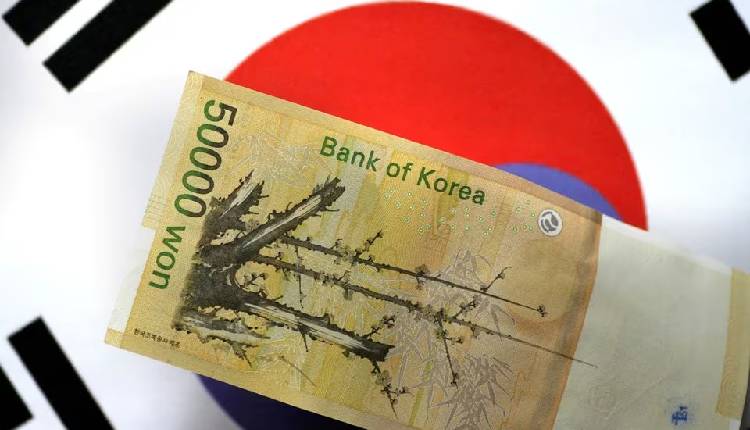S. Korean won weakens sharply, outpaces global peers in weekly decline
The South Korean won emerged as the weakest-performing currency among major peers last week, as President Yoon Suk Yeol’s brief declaration of martial law sent shockwaves through financial markets, according to data released Sunday.
The won depreciated by 24.5 won per dollar over the week, marking its sharpest decline since January’s third week, when it fell by 25.5 won. Closing at 1,419.20 won per dollar on Friday, the currency dropped 1.86 per cent compared to the previous week, hitting levels last seen in October 2022.
In comparison, other major currencies fared better against the US dollar: the Australian dollar lost 1.32 per cent, the Chinese yuan fell 0.36 per cent, while the Japanese yen and British pound gained 0.1 per cent and 0.26 per cent, respectively.
The won plunged to 1,442 during offshore intraday trading on Wednesday, mere hours after Yoon’s surprise late-night announcement of martial law. Although the declaration was swiftly overturned by a parliamentary vote, the uncertainty has lingered, keeping the won at the 1,400 level.
Investor sentiment, already dampened by global semiconductor market concerns and uncertainty over US President-elect Donald Trump’s tariff policies, took a further hit.
“The political developments have further dented investor sentiment, already affected by concerns about the semiconductor industry cycle and uncertainty stemming from Donald Trump’s tariff policy,” Moon Jeong-hee, an economist from KB Kookmin Bank, stated.
Foreign investors also contributed to the market downturn, offloading a net 1.09 trillion won (approximately $765.45 million) worth of shares from the benchmark Korea Composite Stock Price Index (KOSPI) market between Wednesday and Friday.
As South Korea grapples with political and economic turbulence, policymakers face mounting pressure to stabilize the financial markets and restore investor confidence.


